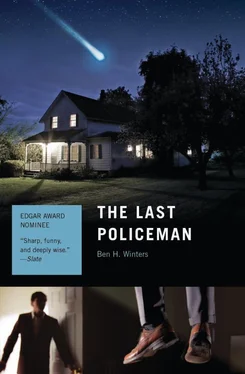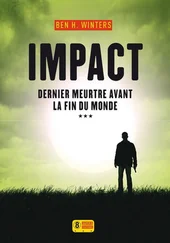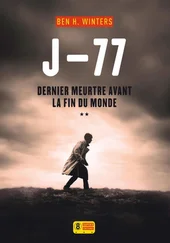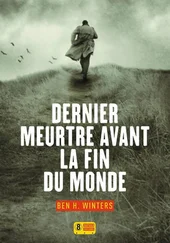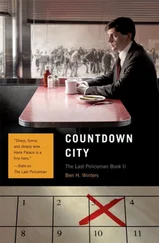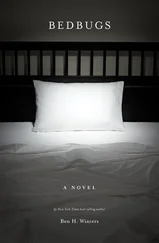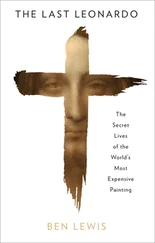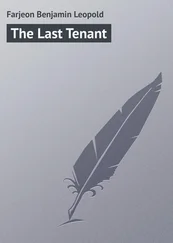* * *
Four Salamander Lane does not look like the headquarters of any kind of institute. It’s a little Cape Cod–style single-family residence, old wood painted in blue pastel, close enough to the water that I can smell the salt breeze, here on the front steps.
“Good morning, ma’am,” I say to the tremendously old woman who answers my knock. “My name is Detective Henry Palace.” It’s not, though. “Sorry, my name is Henry Palace. Is this the Open Vista Institute?”
The old woman turns silently and goes into the house, and I follow her, and tell her what I want, and at last she speaks.
“He was an odd duck, wasn’t he?” she says, of Peter Zell. Her voice is strong and clear, surprisingly so.
“I actually never met him.”
“Well, he was.”
“Okay.”
I just figured it couldn’t hurt to find out a little more about this file, this last claims investigation that my insurance man was up to, before he was killed. I’ve had to return my department-issued Impala, so I just biked out here, broke out my mother’s old Schwinn. It took me a little over five hours, including a stop to eat my lunch at an abandoned Dunkin’ Donuts at a highway rest stop.
“An odd duck. And he didn’t need to come here.”
“Why not?”
“Because.” She gestures to the file I brought, which rests on the coffee table between her and me, three pieces of paper in a manila folder: a claim, a policy, a summary of supporting documents. “There was nothing he asked that he couldn’t have asked me on the phone.”
Her name is Veronica Talley, it’s her signature on the files, hers and that of her husband, Bernard, now deceased. Mrs. Talley’s eyes are small and black and beady, like doll’s eyes. The living room is small and tidy, the walls lined with seashells and delicate seaweed still lifes. I am still seeing zero evidence that this is the headquarters of any kind of institute.
“Ma’am, I understand that your husband committed suicide.”
“Yes. He hung himself. In the bathroom. From the thing—” She looks irritated. “The thing? That the water comes out of?”
“The showerhead, ma’am?”
“That’s right. Excuse me. I’m old.”
“I am sorry for your loss.”
“Shouldn’t be. He told me he was going to do it. Told me to go for a walk along the water, talk to the hermit crabs, and when I got back he’d be dead in the bathroom. And that’s how it happened.”
She sniffs, appraises me with her tiny hard eyes. Bernard Talley’s death, I know from having read the papers on the table between us, netted her one million dollars, personally, and an additional three million for the Open Vista Institute, if there is such a thing. Zell had authorized the claim, released the money, after his visit to this place three weeks ago—though he had left the file open, as if he might have been intending to come back, follow up.
“You’re a bit like him, aren’t you?”
“Excuse me?”
“You’re like your friend, the one that came out here. Sat right there where you’re sitting.”
“As I said, ma’am, I never knew Mr. Zell.”
“Still, you’re like him though.”
There are wind chimes hung right out the back window, behind the kitchen, and I just keep still for as second, listen to their gentle crystal tolling.
“Ma’am? WIll you tell me about the Institute? I would like to know what all that money will go toward.”
“That’s just what your friend wanted to know.”
“Oh.”
“It’s not illegal. We’re a registered nonprofit. 501(c)3, whatever it’s called.”
“I’m sure.”
She doesn’t say anything else. The wind chimes go again, and then a drift of parade music, tubas and trumpets from the gazebo, warming up.
“Mrs. Talley, I can find out in other ways if I must, but it would be easier if you could just tell me.”
She sighs, stands up and shuffles out of the room, and I’m following her, hoping we’re going somewhere so she can show me, because that was pure bluff—I have no real way of finding out anything. Not anymore.
* * *
The money, as it turns out, has gone in large part for titanium.
“I’m not the engineer,” says Mrs. Talley. “Bernard was the engineer. He designed the thing. But the contents we chose together, and we solicited the materials together. We started in May, as soon as it became clear that the worst was a real possibility.”
On a worktable in the garage is an unadorned metal sphere, a few feet in diameter. Mrs. Talley tells me the outer layer is titanium, but that is only the outer layer: there are several layers of aluminum, levels of a thermal coating of Mr. Talley’s own design. He had been an aerospace engineer for many years, and he felt certain that the sphere would be resistant to cosmic radiation and to damage from space detritus, and it could survive in orbit around Earth.
“Survive for how long?”
She smiles, the first time she has done so in my presence.
“Until humanity recovers sufficiently to retrieve it.”
Packed carefully inside the sphere are a brick of DVDs, drawings, rolled-up newspapers in glass cases, and samples of various materials. “Salt water, a clump of clay, human blood,” says Mrs. Talley. “He was a smart cookie, my husband. A smart cookie.”
I go through the inventory in the little satellite for a few minutes, turning over the odd assemblage of objects, holding each thing in my hand, nodding appreciatively. The human race, human history, in a nutshell. While putting the collection together, they had contracted with a small private aerospace company to do the launch, scheduled it for June, and then they’d run out of money. That’s what the insurance claim was for; that’s what the suicide was for. Now the launch, says Mrs. Talley, is back on schedule.
“Well?” she says. “What do you want to add to the capsule?”
“Nothing,” I say. “Why do you ask that?”
“That’s what the other man wanted.”
“Mr. Zell? He wanted to put something in here?”
“He did put something in there.” She reaches into the accumulated materials, shifts through and removes an innocuous manila envelope, thin and small and folded over. I hadn’t noticed it before. “I actually think this is why he came up here, to tell you the truth. He pretended that he needed to investigate our claim in person, but I had told him everything, and then he showed up here anyway. Came up here with that little tape, and then he asked, kind of mumbling, if could he put it in here.”
“Do you mind?”
She shrugs. “He was your friend.”
I lift the small envelope and shake out what’s inside: a microcassette tape, the kind that was once used for answering-machine messages, the kind on which senior executives would make their dictations.
“Do you know what’s on it?”
“Nope.”
I stand there looking at the tape. It might take me some effort to find something that could play this tape, is what I’m thinking, but I could definitely make it happen. At the station house, in one of the storerooms, there were a couple of old answering machines. They might still be there, and Officer McConnell could maybe dig one out for me. Or I’m sure I could find a pawn shop, or maybe at one of the big outdoor markets they’re having down in Manchester now, every week, big public-space flea markets—I could find one, play the tape. Be interesting, if nothing else, just to hear his voice—be interesting—
Mrs. Talley is waiting, watching me with her head at an angle, like a bird. The little tape rests in my palm like my hand belongs to a giant.
“Okay, ma’am,” I say, slipping the tape back into the envelope, laying it back in the capsule. “Thanks for your time.”
Читать дальше
